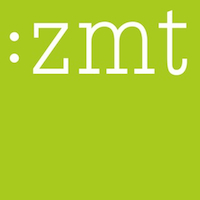| Pages in topic: < [1 2 3 4] > | AI: Apparent consensus among freelancers who have tried it: It can be really useful. But be careful. Thread poster: Henry Dotterer
|
|---|
Gregory Thomas (X)
United States
Local time: 13:51
English to Greek
+ ...
| "Everyone is using it, 45% admit it" | Jan 27 |
Barbara Carrara wrote:
,

If you read the small print, the 'numbers', and the '45%' stated therein are taken from 'one of the latest ProZ.com industry reports'.
They mean their questions they put in the forums, where only a handful responds. In the completely unregulated translation industry, everything is an "industry report".
So my opinion should be an industry report too, because to say I proofread "hundreds of docs annually" would be an understatement, if I have 3 daughters without college debt. So based on the texts that I proofread: 100% of Greek translators are using Google Trans API or other tool, and it shows in the writing (too chatty, meaning lots of additional useless words, causing headache and loss of concentration). In some cases they don't even bother editing, so when I run it out of curiosity through the API, it's 100% match.
When they can't use it (handwritten PDFs), sometimes the text into English is either funny or word-for-word, such as "the pilot of the fun boat" (she meant the helmsman of the recreational boat) or "the beautiful bouquet in front of the lens" (she meant the lens front bokeh), etc. Without the Google API they're gone.
The correct Proz report should have been "Probably everyone is using it, only 45% admit it".
[Edited at 2024-01-27 05:26 GMT]
| | | | Gregory Thomas (X)
United States
Local time: 13:51
English to Greek
+ ...
| "But this is new, client-specific text, how did it get it right?" | Jan 27 |
...by the way, the more you are trying to beat MT with smarter entries in texts that need no change, the more alternative segments it has - one day the matching source appears, and it fills it 100% instantly ("but this is new client-specific text, how did it get it right?"). If you come across an MT segment better than yours, it means another translator at some point tried to beat the machine (to the machine's benefit).
| | | | Zea_Mays 
Italy
Local time: 20:51
English to German
+ ...
| What are we talking about here? | Jan 27 |
I renew my question:
Zea_Mays wrote:
* Many people have not tried it
...we would need to know what is meant here with "AI"? Just the conversational CHAT BOTS?
| | | |
Lefteris Kritikakis wrote:
The correct Proz report should have been "Probably everyone is using it, only 45% admit it".
More unsubstantiated uber-cynical speculation. If you stopped presenting your opinions as absolute truths from an insider who knows better than everyone else, they might gain more traction.
I for one don’t use AI, because it’s rubbish.
| | |
|
|
|
[quote]Henry Dotterer wrote:
Cautions:
* never trust ai and allways double check the translation yourself.
* You may experiment and use AI, but make sure you read and check every word of your translation, check consistency of terminology, and little details, since AI is still imperfect and you may find errors that are overlooked if not paying attention and could be significant, for example it can get confused with acronyms that are the same but mean different things for different fields.
* Make sure to come up with your translation first. Because once you see what AI came up with, you'll likely be pulled toward the AI generated translation.
* They should definitely apply, however, AI being an extensive field, myself being just a novice user (not having used premium features but just the free ones), can't foresee what a long-term, extensive use could bring.
* Learn how to communicate with AI. It is not an all-knowing resource. ChatGPT, for instance, is not always correct, so check information against other sources. Use it simply as another tool to help you with your work.
* Just ask the questions to AI one would ask a colleague, bearing in mind that explaining the context is very important. Bear in mind that the answer is not always correct, and double-check it. One may need to challenge the bot to get a better reply.
* Investigation is a key element in translation and people should use available tools to achieve a certain goal in a better and faster way. However, machines must be used as any other piece of equipment: human supervision and good sense are always essential.
This feedback on using AI in translation highlights several important points:
Verification: The consensus is that AI translations should always be double-checked by human translators. This ensures accuracy and catches potential errors.
AI as a tool, not a replacement: The comments emphasize that AI should be used as an additional resource rather than a substitute for human expertise.
Potential biases: One comment warns about the risk of being influenced by AI-generated translations, suggesting translators should attempt their own version first.
Context importance: Several comments stress the need to provide proper context when using AI for translation, as this can significantly impact the quality of the output.
Limitations of AI: There's an acknowledgment that AI, while useful, is not infallible. It can make mistakes, especially with nuanced language or field-specific terminology.
Learning curve: Some comments suggest that effective use of AI in translation requires learning how to communicate with and utilize these tools properly.
Balanced approach: The feedback generally advocates for a balanced approach, leveraging AI's strengths while still relying on human expertise for quality control and nuanced understanding.
Potential for improvement: There's an implication that AI's role in translation may evolve with long-term use and as the technology advances.
Overall, the feedback presents a cautious but open-minded approach to incorporating AI in translation work, emphasizing the continued importance of human oversight and expertise.
| | | | Zea_Mays 
Italy
Local time: 20:51
English to German
+ ...
but your posts read like they were written by an AI bot.
Soonthon LUPKITARO(Ph.D.) wrote:
This feedback on using AI in translation highlights several important points:
Verification: The consensus is that AI translations should always be double-checked by human translators. This ensures accuracy and catches potential errors.
AI as a tool, not a replacement: The comments emphasize that AI should be used as an additional resource rather than a substitute for human expertise.
Potential biases: One comment warns about the risk of being influenced by AI-generated translations, suggesting translators should attempt their own version first.
Context importance: Several comments stress the need to provide proper context when using AI for translation, as this can significantly impact the quality of the output.
Limitations of AI: There's an acknowledgment that AI, while useful, is not infallible. It can make mistakes, especially with nuanced language or field-specific terminology.
Learning curve: Some comments suggest that effective use of AI in translation requires learning how to communicate with and utilize these tools properly.
Balanced approach: The feedback generally advocates for a balanced approach, leveraging AI's strengths while still relying on human expertise for quality control and nuanced understanding.
Potential for improvement: There's an implication that AI's role in translation may evolve with long-term use and as the technology advances.
Overall, the feedback presents a cautious but open-minded approach to incorporating AI in translation work, emphasizing the continued importance of human oversight and expertise.
| | | |
Zea_Mays wrote:
but your posts read like they were written by an AI bot.
Maybe that’s the point😂
| | | | ibz 
Local time: 20:51
English to German
+ ...
[quote]Zea_Mays wrote:
but your posts read like they were written by an AI bot.
[unquote]
And they pop up everywhere 👀
| | |
|
|
|
Zea_Mays 
Italy
Local time: 20:51
English to German
+ ...
ibz wrote:
And they pop up everywhere 👀
The account may have been hacked.
| | | | | General-purpose LLMs as translation tools | Jun 25 |
What makes conversational AI powerful is how it can read context. If, however, you use it for translation, it just pairs up matrix and vector flows for different languages so the translation is essentially written in the source language, only using "tokens" from the target language as it slides the attention frame over the source. In a language pair (like mine) that requires thorough restructuring for the output to be readable and idiomatic, such a system (like ChatGPT) will produce subpar resul... See more What makes conversational AI powerful is how it can read context. If, however, you use it for translation, it just pairs up matrix and vector flows for different languages so the translation is essentially written in the source language, only using "tokens" from the target language as it slides the attention frame over the source. In a language pair (like mine) that requires thorough restructuring for the output to be readable and idiomatic, such a system (like ChatGPT) will produce subpar results, as I've been noticing in my tests. A system designed for translation only may perform somewhat better, at least if it uses more complex logic on inputs and outputs optimized for translation (which I'm not sure about).
I stopped using anything MT for my translations a few months ago, so I'm definitely among the "remaining 55%." If I fancied using chatty chatbots for research purposes, I have quite a lineup to choose from, including GigaChat, YandexGPT, and even YouChat, which has been sending me ads since I first got it on my radar. I find that my own research algorithms are efficient and reliable enough, so no such tools have ever grabbed my attention (honestly: not a single time). Maybe these toys are good for mechanical work like aligning texts, inserting terms from a glossary, or extracting terms into one ▲ Collapse
| | | |
Zea_Mays wrote:
ibz wrote:
And they pop up everywhere 👀
The account may have been hacked.
I really wanted to write a spoof ChatGPT post about the possible reasons why someone would want to hack an account on ProZ and post stuff about the joy of AI, but I couldn't think of any. Nor have I the time to write a whole essay when two lines would suffice.
| | | | Zea_Mays 
Italy
Local time: 20:51
English to German
+ ...
Christopher Schröder wrote:
I really wanted to write a spoof ChatGPT post about the possible reasons why someone would want to hack an account on ProZ and post stuff about the joy of AI, but I couldn't think of any. Nor have I the time to write a whole essay when two lines would suffice.
To test if it works? To prepare for a larger disinformation campaign? Out of boredom?
But why would someone start posting dozens of AI posts in a row? Makes no sense either.
| | |
|
|
|
Lieven Malaise
Belgium
Local time: 20:51
Member (2020)
French to Dutch
+ ...
Zea_Mays wrote:
but your posts read like they were written by an AI bot.
Very likely, because the English in his posts seems flawless (to a non-native speaker like me anyway), while the English on his profile definitely isn't. The style is also very slick.
Some of his recent posts also seem to be a summary of previous posts in the threads he's posting in, which gives them a kind of weird and robotic feel.
It's kind of reassuring, though, that the use of AI is easily recognizable because people, most certainly in informal communication, tend to make more little mistakes or simply use other language. I mean, who would choose to write like that if AI wouldn't exist?
| | | | Lieven Malaise
Belgium
Local time: 20:51
Member (2020)
French to Dutch
+ ...
Zea_Mays wrote:
To test if it works? To prepare for a larger disinformation campaign? Out of boredom?
But why would someone start posting dozens of AI posts in a row? Makes no sense either.
Perhaps for training oneself in communicating "better" (as an non-native English speaker). Not that long ago someone posted in these forums basically saying that you had to be stupid to still try to earn a living as a translator and that he was all into marketing now (the guy that said that he refused to work more than a couple of hours a day). He posted using a "trendy" AI language to a point that it was simply ridiculous.
I believe AI tempts a lot of people into trying to outperform their own capabilities.
| | | | Ha Le 
Vietnam
English to Vietnamese
+ ...
| AI is just an application Not Human translation | Aug 29 |
AI is just an application NOT human translation and I refused all of language projects that relate to train AI. AI is a toxic friend that will be back to bite us - the linguists.
I Say NO to all AI support Projects.
| | | | | Pages in topic: < [1 2 3 4] > | There is no moderator assigned specifically to this forum. To report site rules violations or get help, please contact site staff » AI: Apparent consensus among freelancers who have tried it: It can be really useful. But be careful. | CafeTran Espresso | You've never met a CAT tool this clever!
Translate faster & easier, using a sophisticated CAT tool built by a translator / developer.
Accept jobs from clients who use Trados, MemoQ, Wordfast & major CAT tools.
Download and start using CafeTran Espresso -- for free
Buy now! » |
| | Trados Studio 2022 Freelance | The leading translation software used by over 270,000 translators.
Designed with your feedback in mind, Trados Studio 2022 delivers an unrivalled, powerful desktop
and cloud solution, empowering you to work in the most efficient and cost-effective way.
More info » |
|
| | | | X Sign in to your ProZ.com account... | | | | | |




















